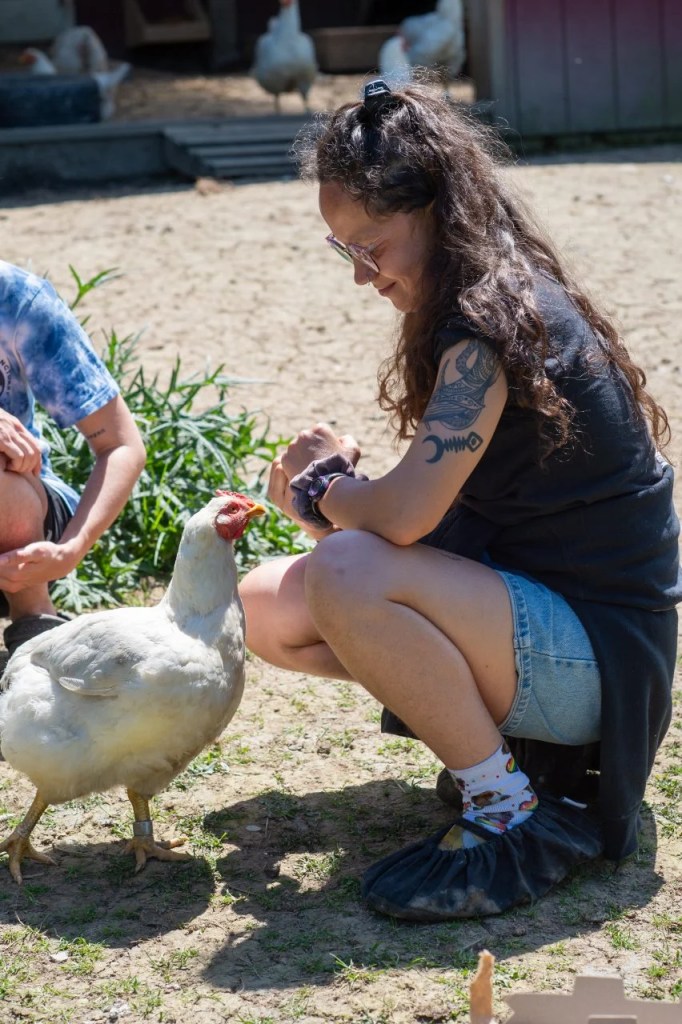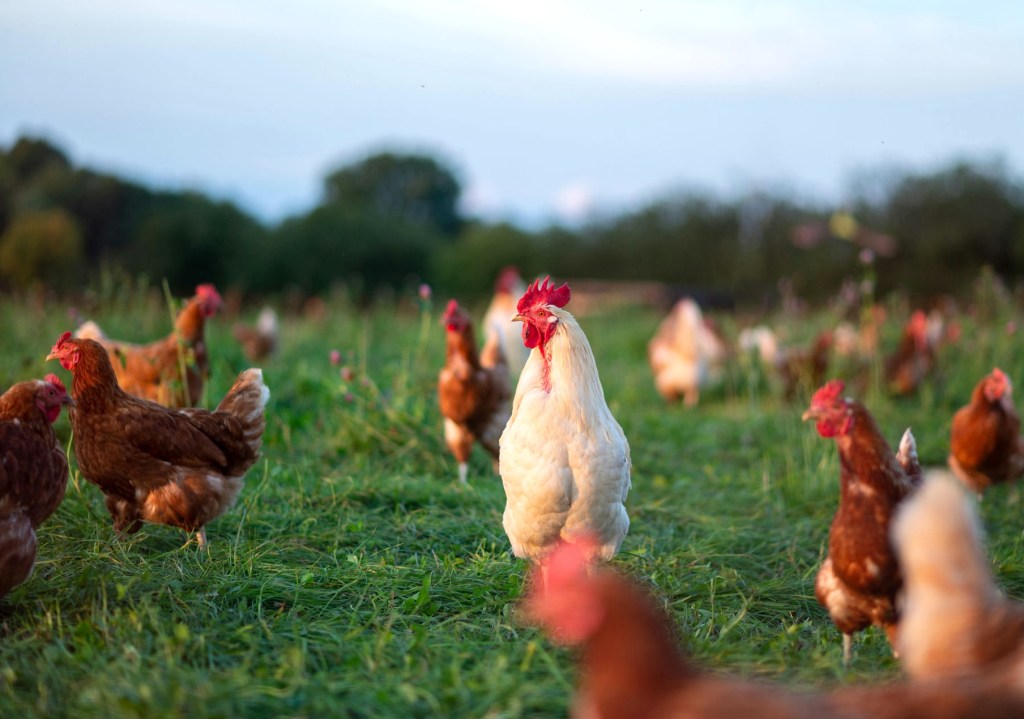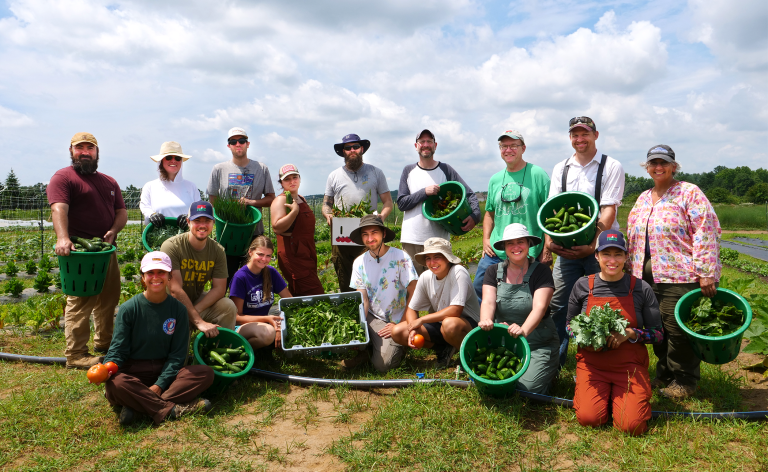We know humans have the capacity to cultivate more positive outlooks, and it turns out we may share that beneficial ability with a much smaller, feathered species. According to a recent peer-reviewed paper, when Cornish cross chickens are given access to learning opportunities, their “optimism” increases.
Previous research (as well as anecdotal evidence from anyone who’s kept them as pets) points to chickens being highly social, intelligent, and emotionally complex creatures. In the new study, titled “Pecking Up Optimism” and published in the Journal of Applied Animal Welfare Science, animal rescue and advocacy nonprofit Farm Sanctuary sought to better understand what influences the birds’ moods in an effort to further welfare protections.

“Our findings revealed that much like humans who enjoy learning new things, Cornish cross chickens presented with learning opportunities experienced increased optimism,” Farm Sanctuary explained, adding: “This exciting achievement makes a new understanding of chicken emotion widely available to the public, animal advocates, and the scientific community.”
The small study looked at this specific breed because it represents the vast majority of chickens raised for meat in the U.S. factory farming system. Per the sanctuary, these birds and others considered poultry are denied basic protections under the Animal Welfare Act and the Humane Methods of Slaughter Act.
Researchers hypothesized that Cornish cross presented with learning experiences would demonstrate improved long-term emotional states, or mood — defined in this context as a tendency toward optimism or pessimism. To measure the birds’ moods, the team conducted a series of “judgment-bias tests” between October 2021 and August 2022. The chickens were first taught that a black bowl always had treats in it, while a white bowl never did.
Next, researchers observed the animals’ behavior when presented with a gray bowl. Those chickens that approached the gray bowl quickly were considered optimistic, and those that approached it slowly were deemed pessimistic.
Finally, the birds’ behavior on the same judgment-bias tests was measured again after they’d been given the opportunity to solve a task that involved a reward. Their behavior was compared to a control group of chickens that had not been presented with a learning challenge. The research team found that the first group demonstrated greater optimism, or an improved emotional state, in the follow-up tests.
@fullcirclefarmsanctuary Cornish Cross Hens, known more commonly as broilers, are sweet and friendly birds. Like dogs and cats and so many other animals, they enjoy the company of each other and humans. They are the most common breed of chicken used for meat. These animals are largely underestimated. Intelligent, curious, and affectionate, birds like Libby and Lennox suffer unimaginable horrors before slaughter when they are still young. It’s a difficult reality to grasp but the severity of the situation cannot be overstated. No animal should suffer needlessly. This is why we urge you to choose vegan. #animalsanctuary #chicktok #rescueanimals #vegan
♬ Somewhere Only We Know – Gustixa & Rhianne
Due to the small sample size of only 13 chickens, the authors emphasized the need to remain cautious in interpreting the study’s results, but noted the findings suggest that “to experience positive welfare, chickens might need to be given the ability to learn and to control aspects of their environment — in this case, access to rewards.”
Said the sanctuary: “This new research shows how we can improve the lives of chickens living in sanctuaries as our movement strives to provide the best and most natural lives possible to rescued farm animals.”
RELATED: Pigpen Conflict Resolution: Study Highlights How the Animals Handle Aggression











